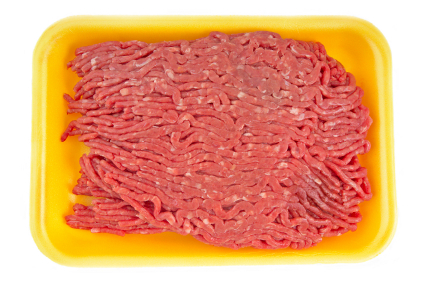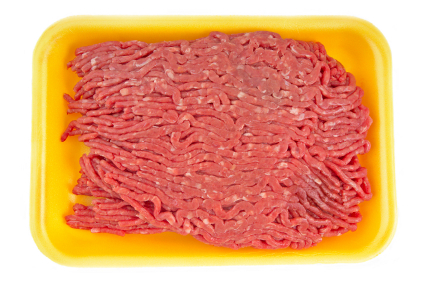 A few years ago, scientists released one of the first studies to examine how diet can affect your exposure to toxic substances. In that case, researchers had a group of Seattle schoolchildren eat an organic diet for five days a week. Almost immediately, pesticide levels in the children’s bodies dropped to almost undetectable levels — and returned to “normal” after they resumed eating a conventional diet.
A few years ago, scientists released one of the first studies to examine how diet can affect your exposure to toxic substances. In that case, researchers had a group of Seattle schoolchildren eat an organic diet for five days a week. Almost immediately, pesticide levels in the children’s bodies dropped to almost undetectable levels — and returned to “normal” after they resumed eating a conventional diet.
Now, a group of Korean scientists have looked at what kind of toxins disappear when research subjects stopped eating conventional meat:
People who adopted a vegetarian diet for just five days show reduced levels of toxic chemicals in their bodies. In particular, levels of hormone disrupting chemicals and antibiotics used in livestock were lower after the five-day vegetarian program. The pilot study suggests that people may be able reduce their exposure to potentially dangerous chemicals through dietary choices, such as limiting consumption of animal products like meats and dairy.
Whoa. (Read the Environmental Research article.)
Little work has been done on the intersection of diet and toxic chemical exposure, so I’m sure there are many such happy surprises out there waiting to be discovered. But with controversy raging over routinely feeding livestock sub-therapeutic doses of antibiotics, this study provides both fear (that we are indeed exposed to antibiotics through meat consumption) and relief (that we can reduce our exposure by changing our diet).
And yes, the researchers did measure the participants’ diet before the study:
The researchers also found that the foods participants ate in the 48 hours before starting the program were related to the concentrations of antibiotics and phthalates in their bodies. Beef, pork and dairy were associated with starting urinary levels of the various antibiotics, suggesting that those foods may be major inadvertent routes of exposure to the pharmaceuticals. Similarly, levels of one particular phthalate breakdown product were related to number of servings of dairy products consumed in the previous 48 hours.
Phthalates are sort of the “other bisphenol A” — a potent endocrine disruptor used in plastics and personal care products. (More background here.) They get into meat and milk through the packaging: the clear plastic wrap, in the case of meat.
This new research does much to dispel any remaining illusions people may have about the connection between what they eat and their exposure to poisons in the environment. Will it cause the American Meat Institute to reconsider its objection to restricting sub-therapeutic doses for livestock, or join with reformers to get endocrine disruptors out of food packaging? Probably not anytime soon. But you don’t have to become a vegetarian to avoid all this — you just need to avoid industrial meat. Stick with organically certified meat (the guidelines restrict the use of antibiotics) or at a minimum, choose meat labeled “antibiotic-free” and ask your grocer to use “phthalate-free” packaging.




